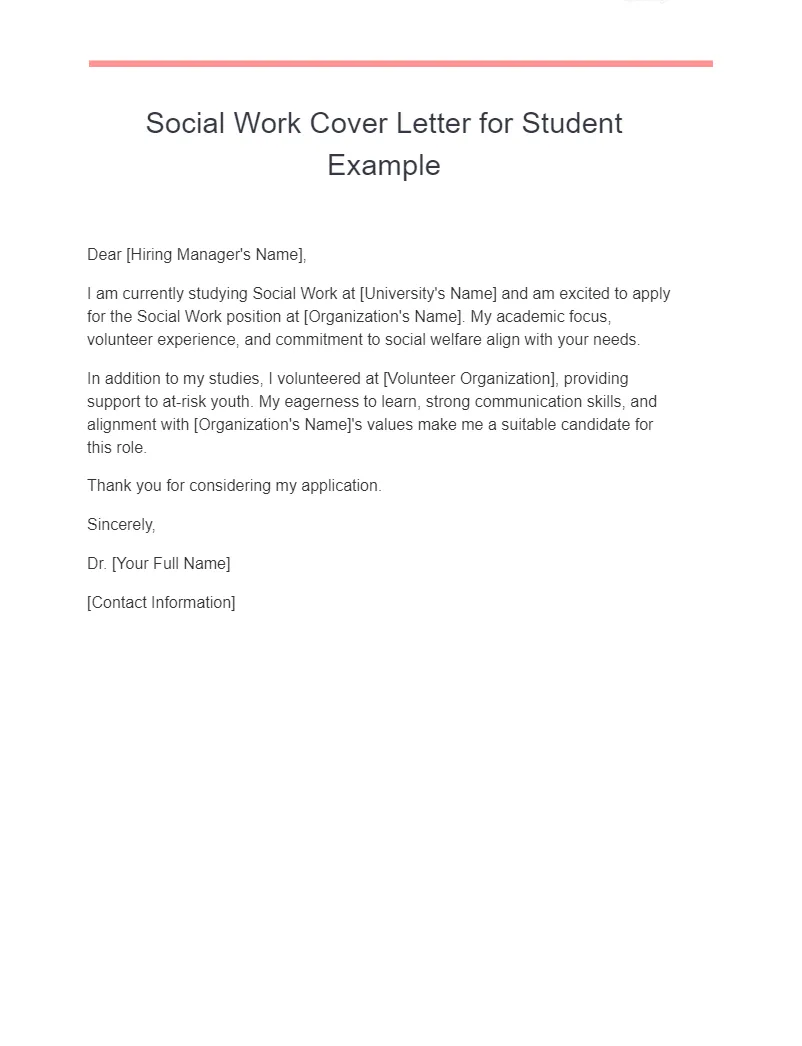Why a Strong Social Work Cover Letter Matters
In the competitive field of social work, a well-crafted cover letter is your first chance to make a positive impression on a potential employer. It’s not just a formality; it’s a crucial tool for highlighting your unique qualifications and demonstrating your passion for the profession. A strong cover letter serves as a powerful introduction, allowing you to go beyond the information provided in your resume and showcase your personality, values, and specific skills relevant to the position. It provides an opportunity to connect with the hiring manager on a personal level, expressing why you are the perfect fit for their organization and the role you are seeking. Furthermore, a compelling cover letter illustrates your commitment to detail and your understanding of the specific requirements of the job. This attention to detail can set you apart from other applicants and significantly increase your chances of securing an interview.
Highlighting Your Skills & Experience
Your cover letter is the perfect platform to showcase your skills and experience in a way that is directly relevant to the job description. Avoid simply restating your resume; instead, use specific examples to illustrate how you have applied your skills in previous roles. Start by identifying the key skills and experiences the employer is seeking and then elaborate on how your background aligns with these requirements. This might include providing details about your experience working with specific populations, using particular intervention methods, or managing challenging situations. Quantify your accomplishments whenever possible. For instance, instead of saying you ‘assisted clients,’ state that you ‘provided case management services to over 50 clients per month,’ or that you ‘increased client engagement by 20% through implementation of a new outreach strategy.’ Demonstrating the impact of your work will make your cover letter much more memorable.
Key Skills to Showcase
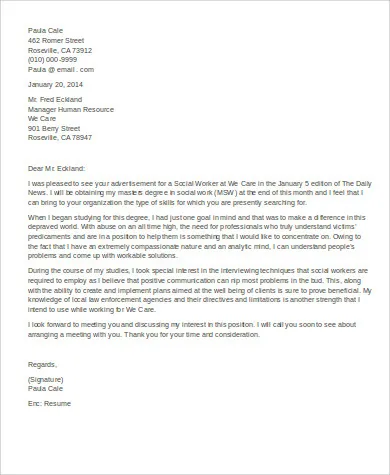
When crafting your social work cover letter, be sure to highlight the essential skills employers seek in candidates. These skills often include empathy, communication (both verbal and written), critical thinking, problem-solving, advocacy, and cultural sensitivity. Provide concrete examples of how you have demonstrated these skills in your previous roles or volunteer experiences. For instance, if you are emphasizing empathy, you might describe a situation where you successfully supported a client through a difficult personal crisis, detailing the actions you took to provide emotional support and practical assistance. If highlighting your communication skills, describe instances where you effectively collaborated with interdisciplinary teams to achieve positive outcomes for clients. Remember to tailor your showcased skills to align with the specific requirements of the job description, making sure you address the specific needs of the role.
Example 1 Cover Letter for Entry-Level Social Work
For entry-level social work positions, your cover letter should focus on demonstrating your passion for the field and your eagerness to learn and grow. Highlight any relevant coursework, internships, or volunteer experiences, emphasizing the skills you gained and the populations you served. Even without extensive professional experience, you can showcase your potential by emphasizing your commitment to social justice, your understanding of ethical principles, and your ability to work effectively within a team. The cover letter should also clearly articulate your career goals and how the specific position aligns with your long-term aspirations. This demonstrates your thoughtfulness and dedication to the field. Be sure to demonstrate your understanding of the agency’s mission and values, and how your skills and values align with their goals.
Focusing on Education and Passion
Since entry-level candidates may lack extensive professional experience, the cover letter should prominently feature your educational background, including your degree, any relevant coursework, and academic achievements. Discuss any research projects or presentations that demonstrate your knowledge and skills. Equally important is expressing your passion for social work. This can be achieved by sharing personal stories or anecdotes that illustrate your commitment to helping others and improving the lives of vulnerable populations. For instance, you could describe a volunteer experience that sparked your interest in social work or a challenging situation where you went above and beyond to support a client. Be sure to convey your enthusiasm, your willingness to learn, and your eagerness to contribute to the agency’s mission. This shows your commitment and readiness to take on the challenges of the role.
Example 2 Cover Letter for Medical Social Work
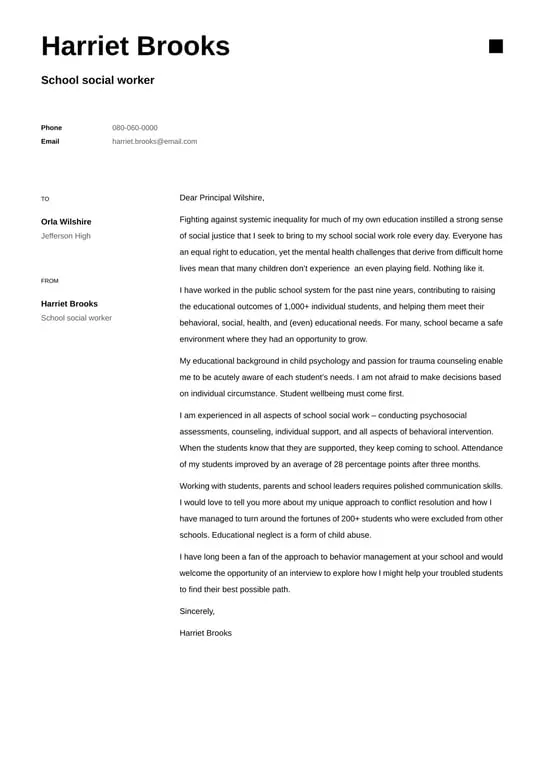
Medical social work requires a unique set of skills, including an understanding of medical terminology, knowledge of healthcare systems, and the ability to work with patients and their families during difficult times. Your cover letter should emphasize your ability to provide emotional support, advocate for patient needs, and coordinate care with other healthcare professionals. Highlight any experience you have working in a medical setting, such as a hospital, clinic, or hospice. If you’ve completed a field placement in a medical environment, be sure to provide detailed descriptions of your experiences, including the types of cases you handled and the interventions you implemented. Furthermore, demonstrate your understanding of ethical considerations and the importance of patient confidentiality.
Emphasizing Empathy and Patient Care
In medical social work, empathy and compassion are paramount. Your cover letter should demonstrate your ability to connect with patients and their families on an emotional level, providing support and guidance during times of illness or distress. Share specific examples of how you have provided patient care, such as assisting patients with understanding their diagnoses and treatment plans, connecting them with resources, and helping them cope with their illnesses. Highlight your communication skills and your ability to work as part of a multidisciplinary team, including doctors, nurses, and therapists. Your focus should be on ensuring the best possible outcomes for patients and their families. This shows your understanding of the essential qualities needed to thrive in this role, as well as your ability to provide practical support.
Example 3 Cover Letter for Child Protective Services
Cover letters for child protective services (CPS) positions should highlight your ability to advocate for the safety and well-being of children and families facing challenging circumstances. Demonstrate your knowledge of child welfare laws, policies, and procedures. Emphasize your experience in conducting investigations, assessing risk, and making difficult decisions in high-pressure situations. Highlight your skills in interviewing children and families, writing reports, and working with court systems. Your cover letter needs to convey your understanding of child development, trauma-informed care, and the importance of family reunification. It is essential to demonstrate your ability to remain calm and professional while managing stressful situations.
Demonstrating Advocacy and Problem-Solving
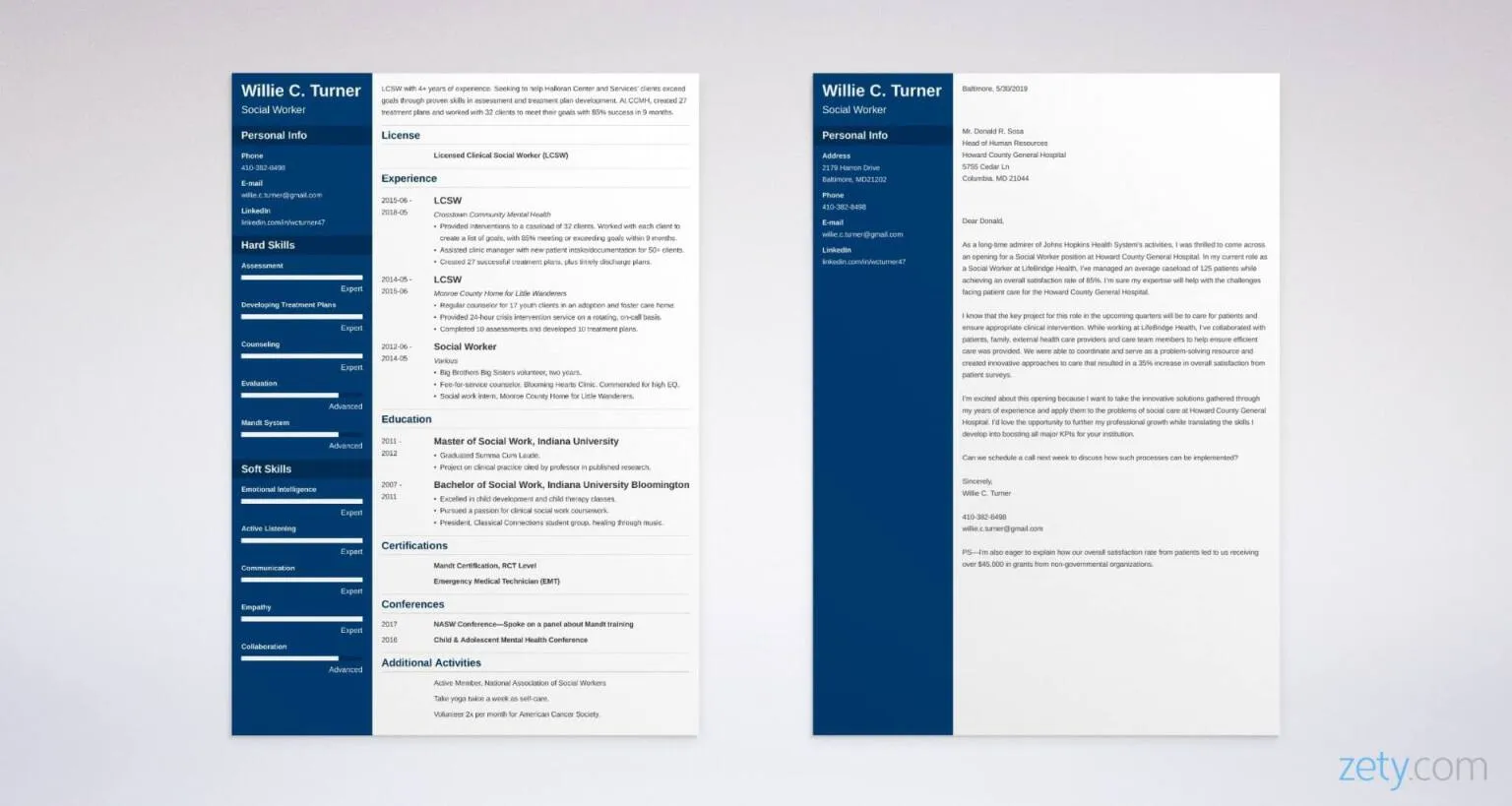
CPS positions require a strong commitment to advocacy and problem-solving. Your cover letter should showcase your ability to advocate for children’s rights and needs, and to work collaboratively with families to promote positive change. Provide examples of how you have successfully resolved complex family issues, such as connecting families with needed resources or mediating conflicts. Highlighting your skills in crisis intervention, de-escalation, and conflict resolution is crucial. Demonstrate your ability to work under pressure and make sound judgments in difficult situations. Remember, the hiring managers are looking for candidates who are passionate about protecting children and making a positive impact on their lives.
Example 4 Cover Letter for School Social Work
School social workers play a vital role in supporting students’ academic success and overall well-being. Your cover letter should highlight your understanding of child development, education systems, and the challenges students face. Emphasize your experience in providing individual and group counseling, conducting assessments, and collaborating with teachers, parents, and administrators. Demonstrate your skills in addressing issues such as bullying, academic difficulties, and behavioral problems. Show your knowledge of special education laws and your ability to advocate for students with disabilities. Your ability to build relationships with students, families, and school staff is essential.
Showcasing Collaboration and Student Support
School social work is all about collaboration and providing support to students. Your cover letter needs to showcase your ability to work collaboratively with teachers, parents, and administrators to create a positive and supportive learning environment. Share examples of your experience in developing and implementing interventions to address student needs, such as social-emotional learning programs or interventions for students with behavioral challenges. Highlight your skills in providing individual and group counseling, and in connecting students and families with resources. Emphasize your ability to advocate for students and promote their academic and personal success. Your passion for empowering students and creating a positive school environment should shine through.
Example 5 Cover Letter for Clinical Social Work
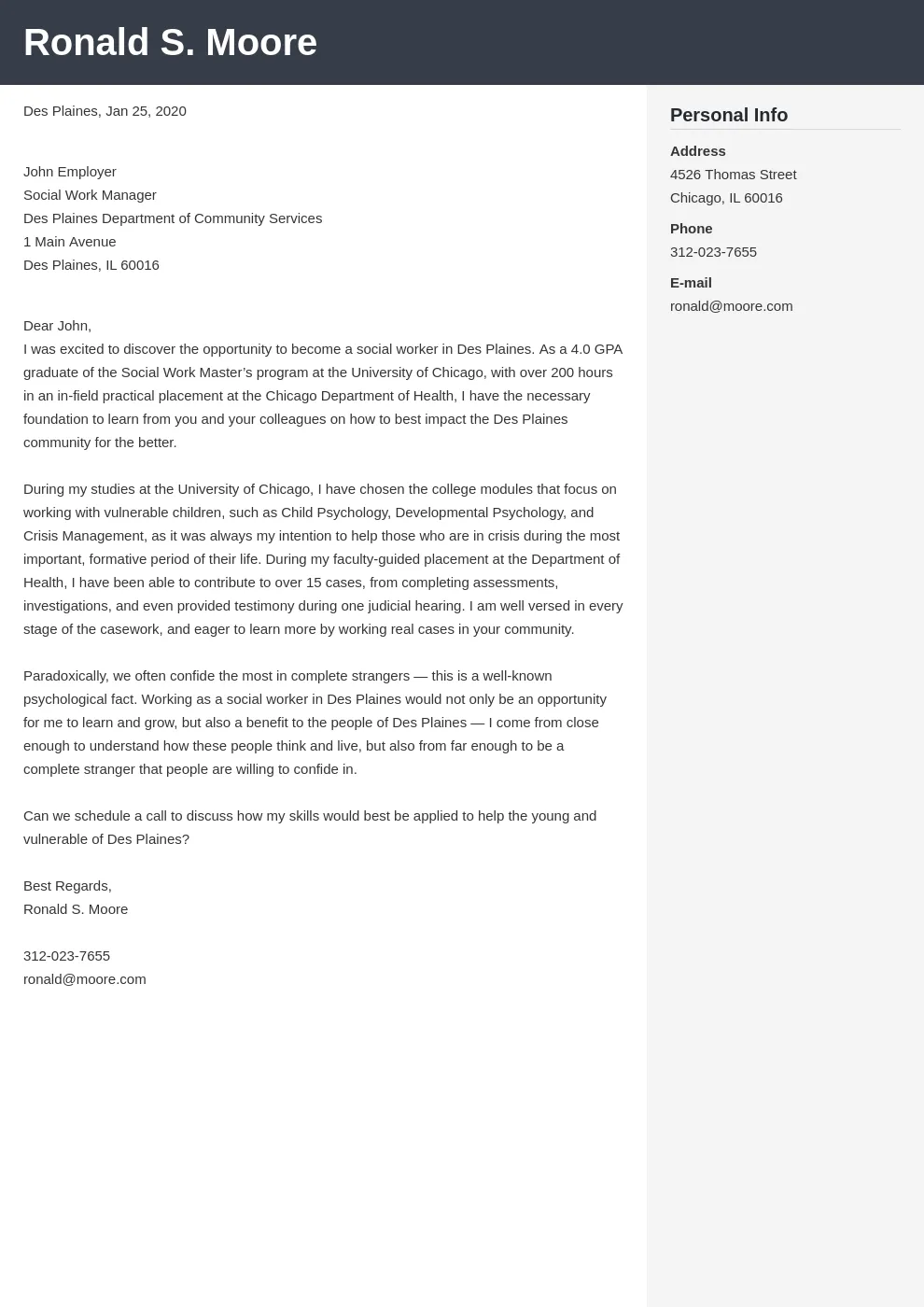
Clinical social work positions require advanced clinical skills, including the ability to assess, diagnose, and treat mental health disorders. Your cover letter should highlight your experience in providing individual, group, and family therapy. Emphasize your knowledge of various therapeutic modalities, such as Cognitive Behavioral Therapy (CBT), Dialectical Behavior Therapy (DBT), and psychodynamic therapy. Showcase your experience in working with diverse populations and in addressing a wide range of mental health issues. Highlight your ability to develop treatment plans, conduct assessments, and maintain accurate clinical records. Your cover letter should also demonstrate your understanding of ethical considerations and your commitment to providing high-quality clinical care.
Highlighting Clinical Experience and Therapeutic Skills
When applying for clinical social work positions, your cover letter should focus on showcasing your clinical experience and therapeutic skills. Provide detailed descriptions of your experience in conducting assessments, developing treatment plans, and providing individual, group, and family therapy. Emphasize your knowledge of various therapeutic modalities and how you have applied them in practice. Describe your experience working with specific populations or addressing particular mental health issues. Highlight your ability to build rapport with clients, establish therapeutic relationships, and help clients achieve their treatment goals. Furthermore, demonstrate your commitment to ongoing professional development, including training and supervision. This shows your commitment to continuous learning.
Tips for Writing Your Social Work Cover Letter
Writing an effective social work cover letter is a crucial step in securing your desired role. Start by carefully reviewing the job description and identifying the key requirements and desired skills. Tailor your letter to align with the specific needs of the position, highlighting the experiences and skills that are most relevant. Research the organization and tailor your letter to demonstrate that you understand their mission and values. Use a professional and concise tone. Be sure to use action verbs to describe your accomplishments, providing concrete examples of your impact. Proofread your letter carefully for grammar and spelling errors, and ask a colleague or mentor to review it as well. By following these tips, you can create a compelling cover letter that showcases your qualifications and increases your chances of landing an interview.
Tailoring Your Letter to the Job
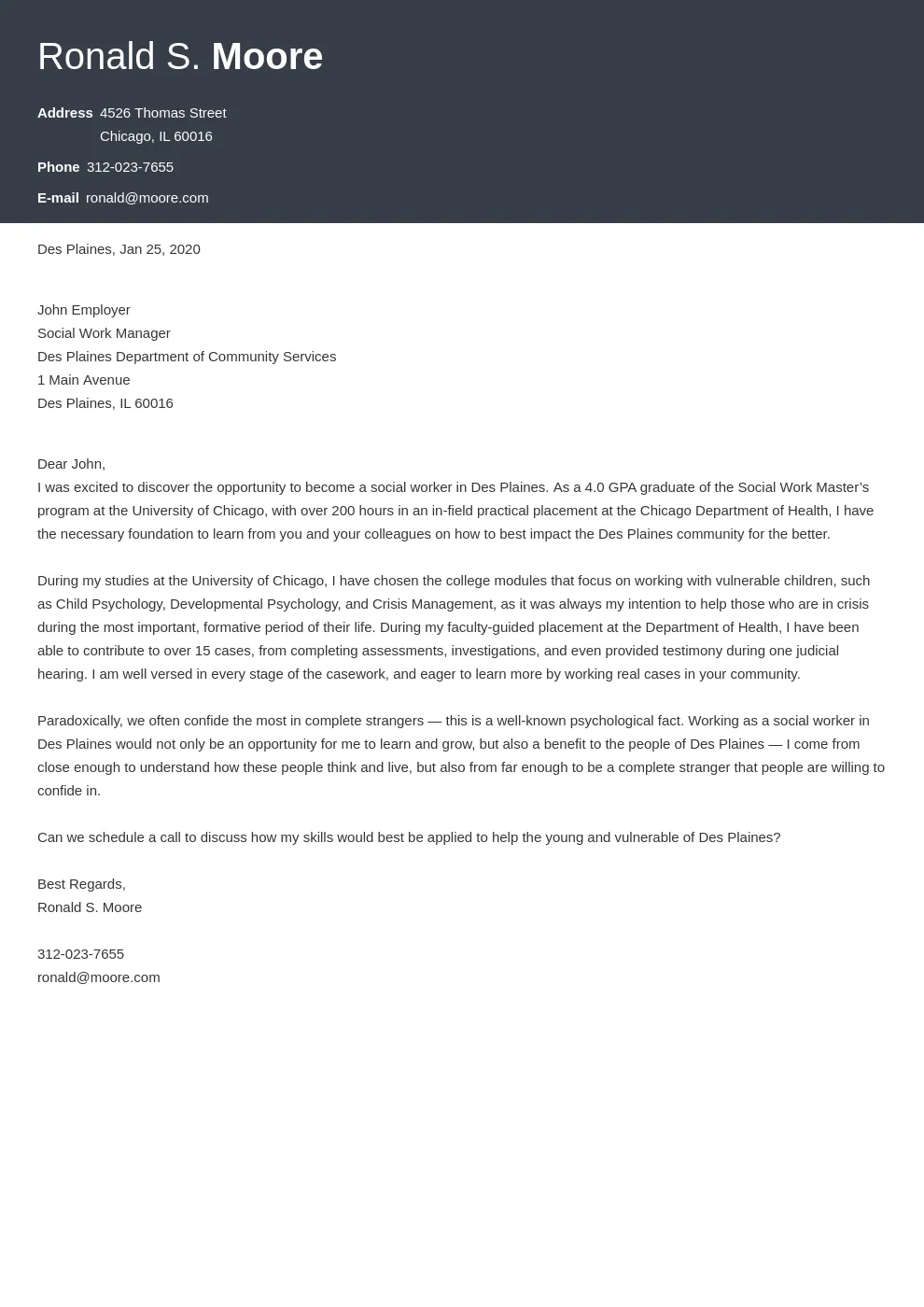
One of the most important tips for writing a successful cover letter is to tailor it specifically to the job you are applying for. This means carefully reviewing the job description and identifying the key requirements and desired skills. Then, highlight your experiences and skills that directly align with these requirements, providing specific examples of how you have demonstrated those skills in previous roles. Research the organization you are applying to and tailor your letter to demonstrate that you understand their mission, values, and the populations they serve. By showing the hiring manager that you have taken the time to understand their needs, you increase your chances of standing out from other applicants. Remember that a generic cover letter will not make a strong impression.
Proofreading and Formatting
Attention to detail is a crucial skill in social work. It’s essential your cover letter reflects this. Proofread your cover letter multiple times to ensure that there are no grammar, spelling, or punctuation errors. Errors can detract from your professionalism and may give the impression that you are not detail-oriented. Use a clean and professional format, with clear headings and paragraphs. Use a readable font, and make sure the letter is easy to read and visually appealing. Consider using a standard font like Times New Roman or Arial. Avoid using overly complex language or jargon, as this can make your letter difficult to understand. Ensure your contact information is accurate and up to date. A well-formatted and error-free cover letter will make a positive impression and demonstrate your commitment to quality.
Common Mistakes to Avoid
There are several common mistakes to avoid when writing a social work cover letter. Avoid using generic templates and tailoring your letter to each specific job application. Avoid simply restating your resume; instead, use the cover letter to elaborate on your experiences and showcase your unique qualifications. Do not include irrelevant information or details that are not directly related to the job you are applying for. Avoid using overly long sentences or paragraphs, and be concise in your writing. Refrain from using slang or informal language. Finally, do not underestimate the importance of proofreading. Errors in your letter can undermine your credibility. By avoiding these common mistakes, you can significantly improve the effectiveness of your cover letter and increase your chances of getting hired.
Conclusion
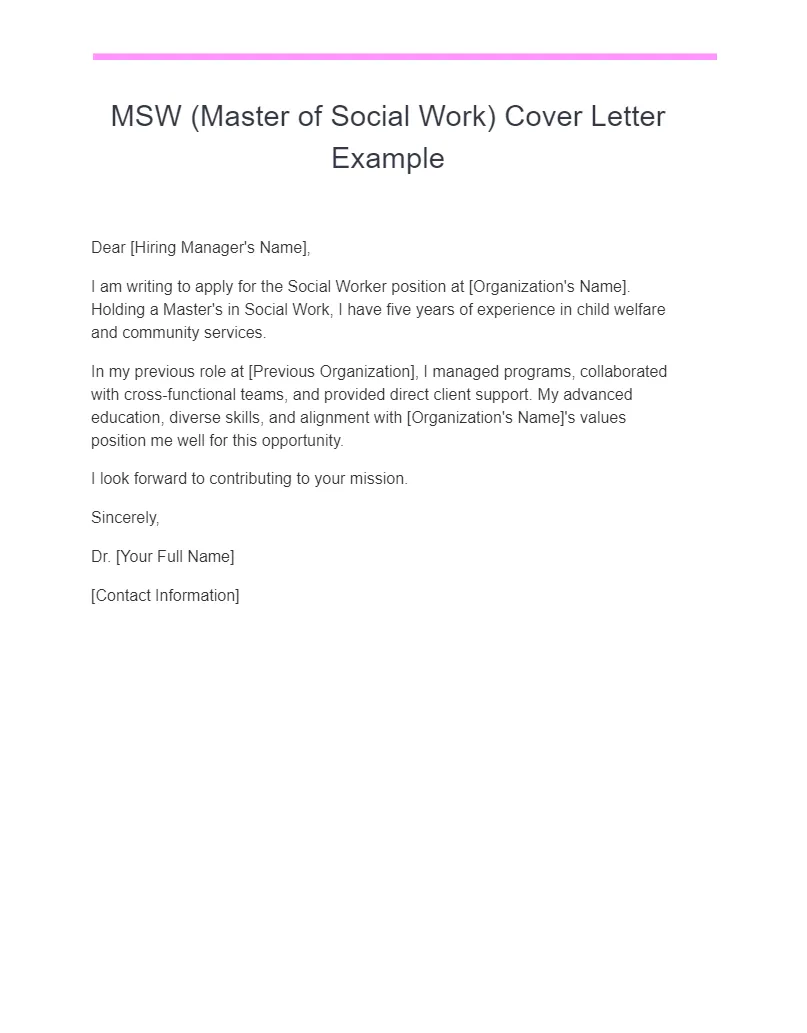
A well-written cover letter is a vital component of your job application, particularly in the field of social work. By showcasing your skills, experience, and passion for the profession, you can make a strong first impression and increase your chances of landing an interview. Remember to tailor your cover letter to each job, highlight your relevant experiences, and emphasize the skills employers are seeking. Proofread your letter carefully and avoid common mistakes. By following these tips, you can create a cover letter that effectively showcases your qualifications and helps you achieve your career goals. Good luck with your job search!
